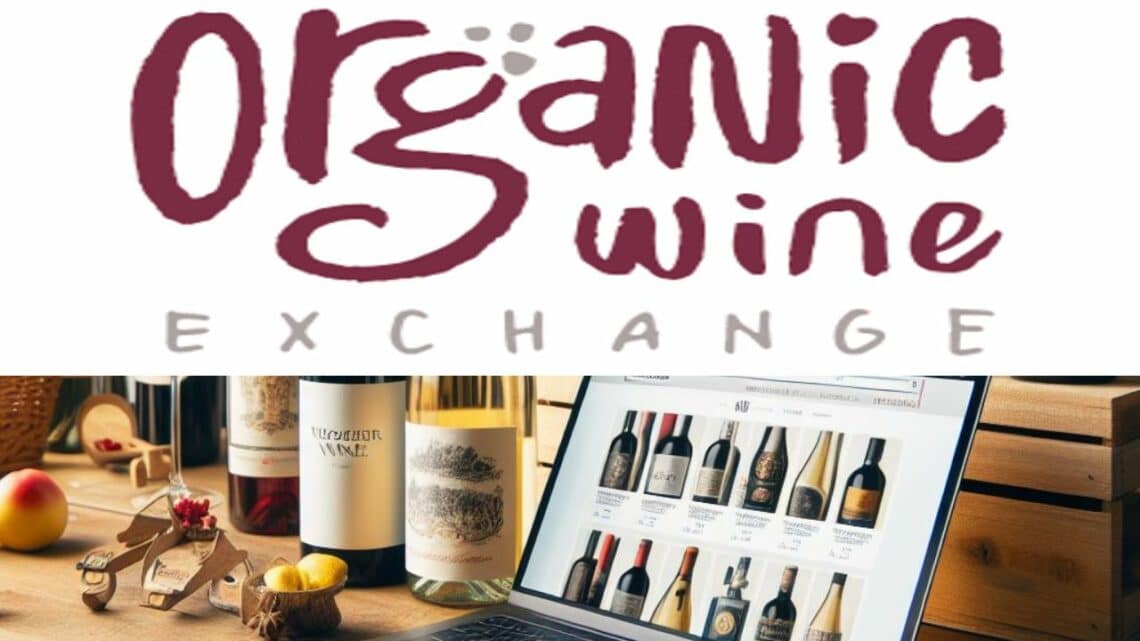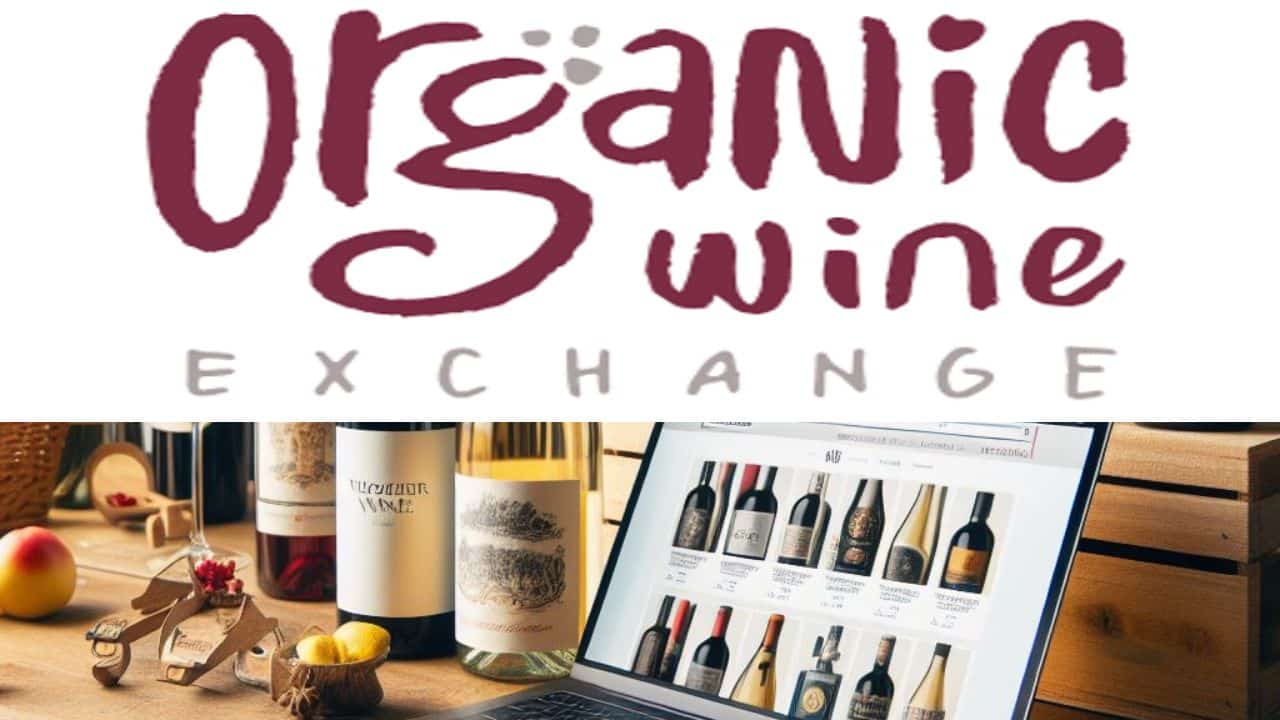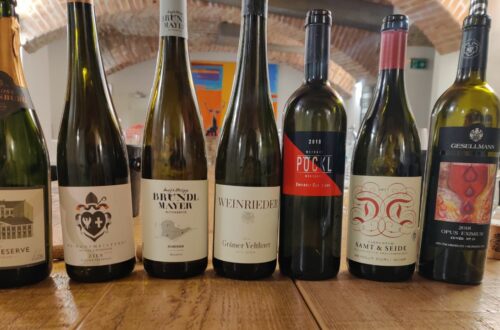
Where can I buy organic Austrian wine online? -Organic wine exchange review-
Picture yourself surrounded by Austria’s beautiful vineyards, enjoying the pure goodness of a glass of organic Austrian wine. As the sun sets, casting warm colors across the sky, you’re transported to a place where sustainability and amazing taste come together…
This seems magical…but what if you’re not in Austria? How can you experience this world of organic Austrian wines? Where can you buy Austrian wine online?
Worry not, wine enthusiast! I may just have found what you’re looking for…
Love the idea of organic and biodynamic Austrian wines, but overwhelmed by where to start? Look no further than Organic Wine Exchange! This online store is the place to be you, wine lover who seeks delicious and sustainable options. They offer a wide variety of organic and biodynamic wines, from classic Austrian favorites to exciting new discoveries. Check out the full review to learn more about their meticulous selection process and dedication to sustainability
- Why buy Organic Wines?
- How can I buy organic Austrian wine?
- Online retailer for the US : Organic Wine Exchange
- What is Organic Wine Exchange?
- How does Organic Wine Exchange ensure quality?
- How does Organic Wine Exchange demonstrate sustainability?
- What wines does Organic Wine Exchange offer?
- Is Organic Wine Exchange user-friendly?
- What is Organic Wine Exchange’s customer service like?
- Several wine clubs on ONE website
- Pros and Cons of Organic Wine Exchange?
Why buy Organic Wines?
Organic wines are becoming increasingly popular. And it’s not a trend : organic wines have numerous benefits.
1. Good for the environment:
Organic winemaking takes a greener route, ditching synthetic fertilizers and chemicals. This move fosters a healthier ecosystem, promoting biodiversity and preserving soil health, contributing to sustainable winemaking practices.
Opting for organic wine is a conscious choice that aligns with sustainable winemaking practices and environmental stewardship. It reflects a commitment to reducing the environmental impact of wine production and fostering healthier ecosystems.
2. Better Soil and Grape Health:
Organic viticulture prioritizes soil health, resulting in grapes that are nurtured by a wholesome environment. These organically grown grapes are free from synthetic residues, retaining their natural flavors and aromas, ultimately enhancing the overall quality of organic wines.
Indeed, emphasizing minimal intervention, organic winemaking allows the natural flavors and characteristics of grapes to shine through.
This often results in expressive wines that showcase the unique qualities of the vineyard’s soil, climate, and grape varieties.
3. Lower exposure to chemicals:
Unlike conventional winemaking that heavily relies on synthetic chemicals, organic winemaking avoids these inputs. This reduction lowers the potential exposure to harmful chemicals, ensuring a cleaner, more natural wine-drinking experience.
4. Potential Antioxidant Boost:
While further research is needed, there’s a suggestion that organic wines may boast a higher antioxidant content compared to their conventional counterparts. Antioxidants play a role in protecting cells from damage caused by free radicals.
All in all, choosing organic wine is a dual-purpose decision, benefiting both personal health and the environment. It’s a healthier option, potentially reducing exposure to synthetic chemicals and providing a potential antioxidant boost.
By choosing organic, individuals actively support sustainable practices, foster healthy ecosystems, and indulge in wines that authentically express their terroir.
How can I buy organic Austrian wine?
There are several ways to purchase organic Austrian wine.
Farmers’ markets and local producers: In Austria, you can often find organic Austrian wine at farmers’ markets and directly from local producers. This is a great way to support local businesses and try wines that are not widely available.
Wine tours and tastings: Wine tours and tastings are a great way to learn about Austrian wine and discover new organic producers. Many wine tours offer tastings of organic Austrian wines, and some even include visits to vineyards and wineries
But of course, living overseas, going to Austria just to buy wine might not be the best value for money (and incredibly bad for the environment).
Other solutions are:
Austrian wine exporters: Some Austrian wine exporters sell directly to consumers, either through their websites or through online retailers. This can be a good option for finding rare or hard-to-find Austrian wines.
Online retailers: Numerous online retailers specialize in organic and biodynamic wines, including Austrian wines. These retailers often offer a wide selection of wines, detailed tasting notes, and customer reviews.
Specialty wine shops: Many specialty wine shops have a dedicated selection of organic and biodynamic wines, including Austrian wines. These shops often have knowledgeable staff who can provide recommendations and answer questions about the wines. You can find specialty wine shops in your area by searching online or asking for recommendations from friends or family.
Here are some additional tips for buying organic Austrian wine:
- Look for certifications: Look for labels that certify organic wine production, such as the EU Organic logo or the Austrian Biokontroll Austria label.
- Explore wine regions: Austria has several distinct wine regions, each with its own unique terroir and grape varieties. Do some research to learn about the different regions and find wines that you are interested in trying.
- Consider winemakers’ reputation: Research the reputation of organic winemakers and their commitment to sustainable practices. Seek out wineries that prioritize natural processes, minimal intervention, and respect for the environment.
Online retailer for the US : Organic Wine Exchange
Organic Wine Exchange recognizes that each wine enthusiast has their own unique preferences. Whether you’re a seasoned connoisseur or a curious novice, their knowledgeable staff is always ready to guide you through their extensive selection.
They’ll take the time to understand your tastes and recommend wines that perfectly align with your preferences, ensuring a personalized and enjoyable shopping experience.
Organic Wine Exchange is devoted to top-notch quality, making sure each wine reflects the best of organic and biodynamic winemaking.
Their careful selection process, strict criteria, and deep understanding of sustainable practices distinguish them as a provider of outstanding organic wines.
What is Organic Wine Exchange?
Organic Wine Exchange is your go-to online hub for discovering top-notch organic and biodynamic wines from various corners of the globe. They take pride in offering a diverse selection, ranging from classic grape varieties to hidden gems, all sourced from vineyards committed to sustainable practices.
With a keen focus on quality, they meticulously curate their wine collection, considering factors like terroir expression, varietal character, and overall balance. Sustainability is not just a buzzword for them; it’s a commitment that extends across their entire business, from sourcing wines to shipping and packaging.
Beyond being an online store, Organic Wine Exchange is a hub of knowledge and exploration. They provide educational resources, host tasting events, and offer personalized recommendations. Their dedication to sharing the love for organic wine goes beyond the digital space.
Key Features of Organic Wine Exchange:
- Diverse selection of organic and biodynamic wines
- Meticulous curation process ensuring quality
- Strong commitment to sustainability
- Educational resources and services
How does Organic Wine Exchange ensure quality?
At Organic Wine Exchange, picking wines is more than just ticking boxes. Their team of wine enthusiasts carefully looks at each wine, thinking about things like where it comes from, the type of grapes, and how well everything blends together.
Each wine tells a unique story about where it’s from—like the weather, the soil, and how the grapes are grown. It’s like taking a sip from different parts of the world.
People have noticed how much effort Organic Wine Exchange puts into bringing you top-notch organic wines. They’ve been in the news a lot, and it just shows that they’re a big deal in the world of organic wine.
How does Organic Wine Exchange demonstrate sustainability?
They make sure every wine follows strict rules for being organic and biodynamic, meaning they don’t mess around with it too much and really care about the environment.
They only choose wines that have official certifications from groups like DEMETER and Biokontroll Austria, so you know they’re serious about being sustainable.
Their concern for sustainability goes beyond the wine : Organic Wine Exchange prioritizes the use of eco-friendly packaging materials, minimizing their environmental impact.
They utilize recycled and recyclable materials whenever possible, reducing waste and promoting sustainable practices throughout their supply chain.
Their commitment extends to their shipping methods, optimizing routes and using sustainable packaging to minimize carbon emissions.
What wines does Organic Wine Exchange offer?
My favourite part of Organic Wine Exchange is of course their Austrian wine selection.

Biokult
Biokult is a community of Austrian organic winemakers bound by their shared passion for sustainable viticulture and their dedication to crafting exceptional wines that embody the distinctive essence of their respective terroirs.
Established in 1997, Biokult has flourished to encompass over 50 members, each contributing their unique knowledge and perspectives to the collective.
Biokult’s philosophy revolves around minimal intervention and environmental stewardship. They adhere to organic viticulture practices, abstaining from synthetic fertilizers, pesticides, and herbicides, and instead employing natural methods to maintain healthy vineyards.
In the cellar, they embrace natural winemaking techniques, allowing the grapes’ inherent flavors and characteristics to take center stage.
Biokult’s wines are renowned for their purity, elegance, and terroir-driven expression. They proudly showcase the diversity of Austrian wine regions, from the classic Grüner Veltliner of the Wachau to the spicy Zweigelt of the Burgenland.
Biokult’s unwavering commitment to sustainability and their dedication to producing high-quality wines have solidified their reputation as a frontrunner in Austrian organic winemaking.
Jurtschitsch
Since 1585, the Jurtschitsch family has been devoted to crafting top-notch wines that mirror their terroir essence while maintaining a profound regard for the environment.
Embracing organic viticulture, Jurtschitsch prioritizes vineyard health by cultivating a biodiverse ecosystem, ditching synthetic fertilizers, pesticides, and herbicides in favor of natural methods like cover crops, green manure, and natural pest control.
In the winery, Jurtschitsch follows minimal intervention, allowing the grapes’ natural fermentation processes to unfold without disruptions. With reduced sulfites and a commitment to avoiding artificial additives, they safeguard the genuine and unadulterated character of their wines.
Recognized as a premier producer of Austrian organic wines, Jurtschitsch’s dedication to sustainability has earned them prestigious awards, including the AWC Vienna Gold Medal and the Kammerpreismedaille Gold from the Austrian Chamber of Agriculture.
Christopher Hoch
Nestled in the picturesque Kremstal, Lower Austria, the Christoph Hoch winery stands as a testament to centuries of winemaking mastery. Founded by Christoph Hoch in 2013, the winery draws from a rich family history dating back to the 17th century, where the Hoch family navigated the Danube and cultivated the land.
Today, Christoph and Julie Hoch are celebrated for their expertise in crafting exceptional sparkling wines, capturing the essence of the region’s minerality with unparalleled skill.
he Kalkspitz, a light and invigorating Pet Nat, reflects the terroir’s character, while the Kalkreich competes effortlessly with esteemed vintage champagnes.
Julie Hoch brings a creative and bold approach to winemaking, producing remarkable Pet Nats infused with grape juice and herbal teas.
These refreshing creations serve as perfect aperitifs—light in alcohol and bone-dry, promising a delightful prelude to any occasion.
Driven by a passion for tradition and a commitment to the land, Christoph Hoch embraces bio-dynamic viticulture, earning DEMETER certification for his vineyards.
With a deep connection to the methods of the past and a profound understanding of contemporary knowledge, Christoph strives to evoke emotions in every bottle.
Is Organic Wine Exchange user-friendly?
Organic Wine Exchange has designed its website to be user-friendly and straightforward. The clean layout, easy-to-navigate menus, and simple search function make it a breeze to explore their extensive collection of organic wines.
Whether you’re looking for a specific grape, region, or style, the website has you covered.

The search function is a handy tool for refining your wine choices. You can filter by grape variety, region, style, and price making it easy to find wines that match your preferences.
Plus, you can save your favorite wines for future reference, creating your personalized wine collection.
Recognizing that wine appreciation is a journey, Organic Wine Exchange goes beyond the website to offer educational resources, tasting events, and personalized recommendations.
Their goal is to empower wine enthusiasts of all levels, helping them confidently navigate the world of organic wine and develop a deeper understanding and appreciation for this sustainable winemaking approach.
Each wine on the website comes with a detailed profile that goes beyond basic descriptions. These profiles tell a captivating story, exploring the wine’s origins, grape varieties, winemaking techniques, and tasting notes.

It’s a chance to discover the unique terroir and character of each wine, providing a deeper appreciation for its craftsmanship and heritage.
What is Organic Wine Exchange’s customer service like?
Organic Wine Exchange values the individual tastes of every wine enthusiast. The team invests time in getting to know each customer’s palate, taking into account their preferred grape varieties, styles, and occasions.
With this understanding, they carefully curate a personalized collection of wines, making sure that each recommendation resonates with the customer’s unique taste.
This personalized touch enhances the wine experience, introducing customers to outstanding wines that align perfectly with their preferences.
Several wine clubs on ONE website
- Organic Wine Club: Emphasizing organic and/or biodynamic wines with low or no sulfites added.
- Specialized Clubs: Choose from Vegan, No Sulfites Added, or Biodynamic Wine Clubs for a tailored experience.

If you sign up for one of these (let me know in the comments which one), the benefits are as follow :
- Flexible Memberships: Opt for 3, 6, or 12-bottle subscriptions, delivered monthly or quarterly, with inclusive shipping.
- Satisfaction Guarantee: If a wine doesn’t meet your taste, they’ve got your back.
- Personalized Service: Annie, part of the small family business, ensures personalized and flexible memberships.
- Convenient Shipping: They use reliable services like GLS (in California) and FedEx for hassle-free delivery.
- Personalization Options: Tailor your membership based on preferences like wine color, region, and more.
- Discounts and Alerts: Enjoy volume discounts, exclusive coupon codes, and alerts on limited releases.
If you need more practical and logistical information, here you will find their terms and conditions.
Subscription Gift Review
Also, Organic Wine Exchange makes for an excellent gift, especially for those who appreciate organic, biodynamic, or no sulfites added wines.
They offer 3-month, 6-month, and 12-month subscriptions, providing a continuous flow of delightful wines.
While the presentation is simple, the environmental-conscious approach justifies the lack of elaborate packaging.
Conclusion : Where can I buy organic Austrian wine?
To sum up, you can buy organic Austrian wine at :
- Farmers’ markets and local producers
- Wine tours and tastings
- Austrian wine exporters
- Online retailers
- Specialty wine shops
Concerning the online retailers, I would recommend Organic Wine Exchange. Let’s take a quick look at the pros and cons
Pros:
- Wide selection of organic and biodynamic wines from around the world: Organic Wine Exchange offers a vast collection of organic and biodynamic wines from diverse regions, encompassing various grape varieties and styles. This extensive selection caters to a wide range of palates and preferences, ensuring that every wine enthusiast can find something to suit their taste.
- Meticulous curation process to ensure quality: Organic Wine Exchange’s team of passionate wine experts meticulously evaluates each wine, considering factors such as terroir expression, varietal character, and overall balance. They prioritize wines that showcase the unique qualities of their origins and reflect the dedication of the winemakers.
- Commitment to sustainability in all aspects of the business: Organic Wine Exchange places a strong emphasis on sustainability, not only in their wine selection but also in their business practices. They work closely with producers who adhere to strict organic and biodynamic principles, minimizing their environmental impact throughout the supply chain.
- Variety of educational resources and services: Organic Wine Exchange is dedicated to sharing their knowledge and passion for organic wine. They offer a wealth of educational resources, including tasting events, wine education sessions, and personalized recommendations. This commitment to education empowers consumers to make informed choices and deepen their appreciation for organic wine.
- Exceptional customer service: Organic Wine Exchange is committed to providing exceptional customer service, ensuring a seamless and enjoyable experience for every wine enthusiast. Their knowledgeable staff is always ready to assist with recommendations, answer questions, and guide customers through the world of organic wine.
Cons:
- Limited availability of some wines: Due to the high demand for organic and biodynamic wines, some of the selections on Organic Wine Exchange may have limited availability. This can be frustrating for customers who are set on a particular wine, but it also highlights the growing popularity and demand for these sustainably produced wines.
- Higher price point compared to conventional wines: Organic and biodynamic winemaking practices often require more labor and dedication, leading to a higher price point compared to conventionally produced wines. However, for many consumers, the commitment to sustainability and the superior quality of organic wines justify the price difference.
- Shipping costs can add to the overall expense: Organic Wine Exchange offers a variety of shipping options, but shipping costs can add to the overall expense, especially for international orders. Customers should carefully consider the shipping costs before placing an order, especially if purchasing multiple bottles.
- Limited physical presence: Organic Wine Exchange is primarily an online retailer, with no physical stores or tasting rooms. This can limit the opportunities for customers to interact with the staff and experience the wines firsthand. However, their extensive website and educational resources provide a wealth of information and guidance.
- Knowledge of organic winemaking may be necessary: While Organic Wine Exchange provides educational resources, some basic knowledge of organic and biodynamic winemaking practices can be helpful for navigating their selection and making informed choices.
>> Click here to view their website<<
I earn a commission if you sign up for a wine club through my recommendations. The views in my reviews are entirely my own, and I don’t receive compensation for providing ratings. I provided unbiased information, well at least to the best of my abilities (being human and a huge believer in organic wines for environmental and health benefits, I can only recommend you try). Feel free to check out other reviews and let me know what you think in the comments!








